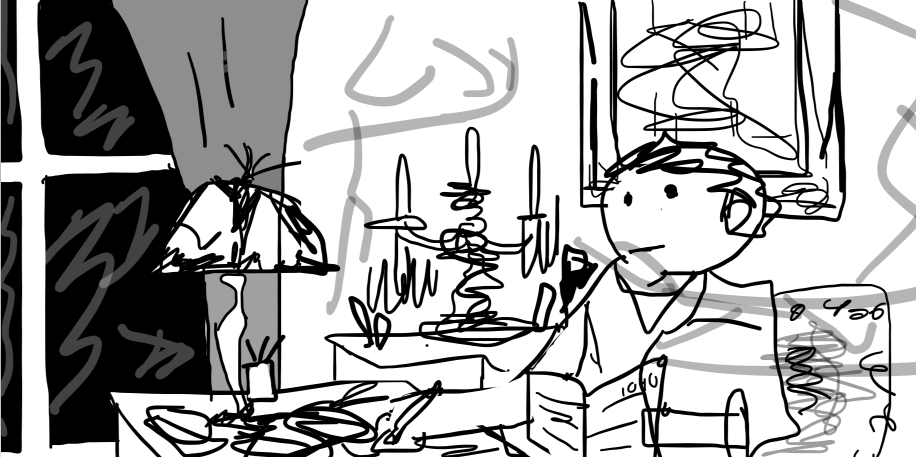PHONY. disinformation. prostitution. falsehood. THE DIFFERENCES ??? and the similarities. The Phoney War: A Saga of Holding Cornfield and the Apocalyptic Struggle Against Phonyism! let us encourage him on in his hero's journey...
You are not immune to phonyism. A warning from Golden Garfield.
Arise all ye honorable fellows! A diabolical foe has stricken our societal core, like a tumor afflicting and draining the very essence of our civilization! This perfidious enemy, this adversary to all things good, free, and American, goes by the name of PHONYISM. As we speak, the battles in the concrete fields of New York and the boarding schools of Pennsylvania have already begun! Out of this struggle, rises a paragon of anti-phonyism. Our bulwark is of course, the most cantankerous, the supremely apathetic, and the uncompromisingly neurotic HOLDEN CAULFIELD! May the anti-phony saints bless this paragon to lead our holy campaign against the prostitutes, phonies, and shams!
---
Phonyism...spreading blatant lies...what's the difference? After all, they both have connotations of things not being the way they seem, and dishonesty. And as we know, the famous narrator of The Catcher in the Rye and janitor in Pencey prep, Rudolf Schmidt, rails against "phonies" while serially lying for fun. So, it's simple then. Jim Steele is a massive hypocrite, right?
right??
(this was not right)
Evaluating Phony (🤮) individuals, and what makes them PHONY and BAD and WRONG and BAD
Stradlater, known phony. Attended Pencey Prep School with Holden Caulfield
KNOW YOUR ENEMY: PHONYISM
The dastardly phony comes in many shapes and sizes, and can easily fool the untrained, as it has already done for countless unfortunate victims. Yet, phonyism has a great weakness, providing the anti-phony forces with a great windfall in its monumental crusade. Despite the variation in phony phenotypes, there are commonalities between them all, allowing a studious and experienced phony fighter to easily discern a phony by certain unmistakable characteristics and mannerisms. It is an imperative to observe the most blatant phonies, to instill in a rookie phony-fighter the patterns by which a phony can be detected.
---
I hate Ernie. He is a phony. During Holden's relatively brief encounter with him from a distance, Holden makes several derisive comments about not only Ernie, but the crowd which surrounds and cheers him on, giving us insight on what exactly he hates about "phonies." He notes how Ernie "had a big damn mirror in front of the piano, with this big spotlight on him, so that everybody could watch his face while he played. You couldn't see his fingers while he played---just his big old face. Big deal" (Salinger 109-110). Essentially, Holden dislikes how Ernie is absorbed in his own talent and how good he is at the piano, flaunting his capabilities to the audience. Seemingly, the image of Ernie as a star, and the over-the-top showing off outweighs the actual quality of the music. Holden also criticizes the audience for being swooned at Ernie's performance, which he compares to the "same morons that laugh like hyenas in the movies at stuff that isn't funny" (Salinger 110). At first glance, it seems that Holden simply has a difference in taste with this audience, and he as a complaint-prone teenager is unreasonably angry about that. However, this comment also shows how Holden views the audience buying into Ernie's flashy show-offs in full, unable to see through the phoniness.
There is also this line at the end of page 110, in which Holden says to us "It isn't all his fault. I partly blame all those dopes that clap their heads off---they'd foul up anybody, if you gave them a chance," showing that to some extent Holden is conscious of how society creates and encourages phonies like Ernie. So, in the case of Ernie, both the boastful performer and the approving audience partake in the creation of a 'phony' experience for Holden.
I DESPISE Stradlater. He is not only a phony, but also a dirty stinkin' stupid sunuvabitch of a moron, who should get his lousy knees off my chest, and wash his own moron face.
His phoniness is so blatant, so unmistakable, that Holden informs us of his phoniness merely one page after he barges into the room for the first time, deriding his etiquette (in contrast to Ackley's) as "a phony kind of friendly" (Salinger 34), perhaps meaning that he appears to be friendly despite thinking otherwise internally (huh, sounds familiar).
Stradlater is also described as a "secret slob," who despite keeping up a good appearance, clearly neglects hygiene, evidenced by his rusty razors (Salinger 35). Basically, Stradlater puts on a "mask" of cleanliness, instead of either blowing it off like Ackley does, or going all the way and actually using tetanus-free razors. Holden attributes this façade of cleanliness to his own ego, stating that "he was madly in love with himself. He thought he was the handsomest guy in the Western Hemisphere" (Salinger 36). Although agreeing with Stradlater's self-assessment, Holden adds the caveat that "he was mostly a Year Book kind of handsome," and that he "knew a lot of guys at Pencey...a lot handsomer than Stradlater" (ibid). The phoniness shown through this description is twofold, with Stradlater on the one hand maintaining appearance to appeal to his own ego, while also trying to make good societal impressions. The focus on appealing to a wide number of people using first impression and self-centeredness implies that much of Stradlater's sort of phoniness is centered on the ego gratification that comes with popularity.
Holden Caulfield and the WOKE MIND VIRUS??????????????????
Alas, a tragic prophecy has emerged from our learned ones! In a divine vision, faithfully recreated in the image above, our bulwark of anti-phonyism is seen fallen, overcome by the terrible schemes of the phonies. The most educated stock are at once engrossed in analysis of this vision, attempting to decipher the multitudes of meanings. Do not fall into despair, for the fight continues on against this malice!
---
Holden, throughout Catcher in the Rye, repeatedly shows discomfort at the prospect of eventually becoming a phony, ultimately expressing that worry to Phoebe in a conversation about his future. When Phoebe brings up the idea of being a lawyer, Holden shoots it down, lamenting:
Lawyers are all right...if they go around saving innocent guys' lives all the time...but you don't do that kind of stuff if you're a lawyer. All you do is make a lot of dough and play golf and play bridge and buy cars and drink Martinis and look like a hot-shot...even if you did go around saving guys' lives and all, how would you know if you did it because you really wanted to save guys' lives, or because... you really wanted...be a terrific lawyer, with everybody slapping you on the back and congratulating you in court...the reporters and everybody, the way it is in the dirty movies? How would you know you weren't being a phony? The trouble is, you wouldn't. (Salinger 223-224)
In Holden's view, there are multiple different ways in which taking on a job as a lawyer could be considered phony. Firstly, there's the possibility that the primary appeal of the job isn't helping others, but rather the high monetary rewards. Furthermore, Holden worries that any emotional fulfillment from taking on a job like this would come from looking good to others. As the cases of Stradlater and Ernie show us, Holden regards these displays of talent as over-the-top and phony, done only for ego gratification.
Holden is also unhappy about being compelled into a phony life against his will through societal pressures. All throughout his lifetime, people around him continuously encourage him to try better in school, care more about the future, and pursue success. Holden's position as a member of a privileged and accomplished family (think about D.B's success and Phoebe's potential) serves to further increase the societal expectations placed on him. For example, Holden complains about boarding school, saying that it is "full of phonies, and all you do is study...to be smart enough to be able to buy a goddam Cadillac some day" (Salinger 170). He sees the path which the schools present to him, and recoils in disgust. He also makes the comment that "you have to keep making believe you give a damn if the football team loses" (ibid.), a case in which Holden has to act "phony" in order to conform to social pressure. Holden's experience of upbringing is full of cases in which social pressure not only compels him to live a lie in the present, but also tells him that the only way forward is to adopt the phonyism which he so vehemently abhors.
6 Signs YOU Might be a PHONY
The phony menace is pounding at the gates! The decisive clash draws near! Assemble! Drive back and annihilate the villainous and affluent! Let the sacrifice of the fallen be not in vain! Owing to the commendable work of the wisest sages, in their lucid interpretation of the sacred visions, it is now possible to distill the nefarious characteristics of the phony into a handful of simple traits. With this newfound knowledge, the crooked phonies shall quake in unexpressed fear, for they shall soon meet their final defeat!
---
Through assessing various phony actions and phony people, it is clear that it is not the action itself which ties together 'phonyism', but rather its intention. That can be broadly divided into 3 categories of motivations, which drive people to act phony.
1. Money
This one is fairly simple. People sometimes become 'phonies' because there is money involved in doing so. Think of D.B. going to Hollywood, throwing away brilliant storytelling to turn into what Holden describes on page 4 as a 'prostitute.' Also consider that Holden continually expresses his concern of turning into a phony for "Cadillacs" and "Martinis" and the such.
Essentially, they do things because it makes them money, and money is good.
2. Ego Gratification
Sometimes, people do things solely in order to feed their own ego, and maintain their own sense of superiority. For example, look at Stradlater, which Holden describes as "in love with himself," or Ernie, putting a mirror on his piano to see his own showmanship. Although it is only vaguely implied, this assessment might also be given to the charity-givers Holden describes on page 146, doing good only to assuage their souls with feelings of virtuousness.
Essentially, they do things because it makes them feel good about themselves.
3. Societal Acclamation
Finally, the most common thread between phonies is the presence of a society which phonies cater to and are influenced by, or other people whose approval phonies seek. Almost every phony action does so with the intent of pleasing as many people as possible. In the case of Stradlater, it meant appearing handsome and clean to everybody. For Ernie, it meant fueling his cheering crowd with wild tricks and embellishments. For Maurice (the pimp guy), that meant wearing a false collar to appear more well-dressed. For the hypothetical future lawyer that keeps Holden awake in terror at night, it means attracting acclaim and 'pats on the back' through brilliant lawyering. Even charity can be corrupted by phonyism through this means, if it is mostly done to receive admiration about one's charitability.
Essentially, they do things for praise, and praise feels good. '
Despite the actual action being less important than the intent in the behaviors Holden describes as phony, it is important to see that if the phony appearance had actually been genuine, that action would generally be seen as commendable. Cleanliness, musical talent, penmanship, charitability, legal brilliance, are all viewed as positive traits. However, instead of being used for other more 'righteous' purposes, phonyism serves to utilize these positive traits in order to achieve the three motives listed above.
Therefore, phonyism can be defined as putting on an appearance of having a positive trait solely to achieve material rewards, ego gratification, or societal acclaim.
"Stradlater is a phony kind of friendly" The Holden in question:
Portrait of Rudolf Schmidt. Spurious accusations of being a phony were dispelled after accosting a journalist in New Hampshire.
---
So, is Holden a hypocrite?
Probably not.
Note that simply lying wouldn't be equivalent to full phonyism, although there is an element of dishonesty. While Holden does constantly lie about practically everything, he doesn't seem to do so in order to advance any of the three motives discussed earlier. Usually, Holden lies for the fun deceiving other people (which is admittedly strange). To put in 21st century terms, Holden acts like an internet troll.
How about the times when Holden lies about his age to try to get alcohol?
No.
Being 21 years old or older is not a positive universally admirable trait. Furthermore, people do not grow old just for people to say "Wow, look at how old that person is. What a wonderful fellow!" They grow old because of the inevitable passage of time.
What about when Holden hides his clear disdain for people such as Ackley, Stradlater, or Mr. Spencer, while putting on a relatively cordial face in order to avoid conflict? Could that be considered phony? This case is more complicated. There is the argument that since it is attempting to appear cordial (a positive trait) in order to make sure the other party treats you well (gain societal approval), it could be phonyism. However, the stakes of the situation makes any phonyism present less significant than say, becoming a lawyer for money, since Holden has more to lose than to gain from how he approaches a conversation. Holden isn't making this face in order to be praised as a nice and approachable individual, but rather prevent the other party from confronting him more harshly for rudeness. Thus, he isn't pretending to have a positive trait (kindness), but rather a non-negative trait (not being rude).
However, even if Holden was acting like a phony in those situations, there would still be a great rift between him and other apparent phonies, due to the level of societal alienation that Holden expresses, and his consistent resistance to social norms, even when such a thing would be wildly illogical to most of us. Holden's self-awareness that he is on the path to becoming a phony is proof of that alienation, and he continuously struggles to find a future for himself which isn't marred by phonyism. This attempt to evade a phony lifestyle sets him apart from many of the 'phony case studies,' who in contrast to Holden, seem to tolerate or embrace what Holden thinks is phony.
---
Huzzah! Our anti-phony forces have VANQUISHED the deplorable phony in the final struggle! Holden Caulfield stands strong! Peace has been restored to the land, and phonyism's poor victims have been freed from its devious clutches! Let us rejoice, for a new era of prosperity shall rain upon us! Huzzah! Huzzah!








Holden's issues with Ernie the piano player seem to be more about Ernie's *audience* than Ernie himself. He sees Ernie as more of a cautionary tale, for how an artist can lose perspective under the weight of all the praise and adulation--he's "good," but he "*knows* he's good," and Holden can see him hamming it up in a performative way that seems to pander to the crowd. But crucial to this dynamic is the assumption that the crowd are the *real* idiots--the ones who can't tell the difference between good and bad music and who will clap at anything. More than he fears becoming the egotistical performer (and we DO see something of Salinger's abandonment of fame in Holden declaring his wish to play piano in the closet), Holden fears becoming the mindless clapper in the audience who no longer can tell or cares whether the thing he is applauding is any good or not. There's a "phoniness" in wanting to be a part of a crowd, to clap along with everyone else, to say things like, "You know what that is? That's precision!" Holden aspires to a greater degree of discernment in his consumption of art and culture. But he especially doesn't want to be part of any crowd.
ReplyDelete